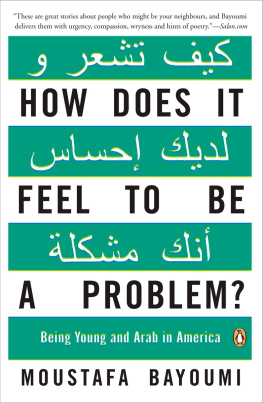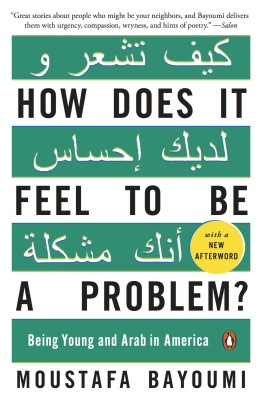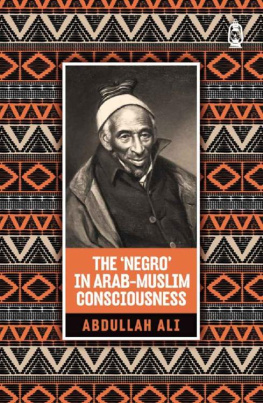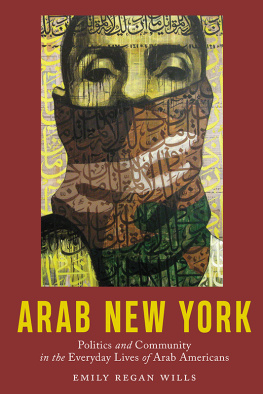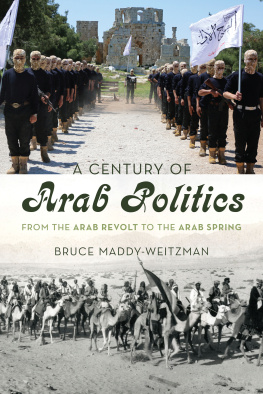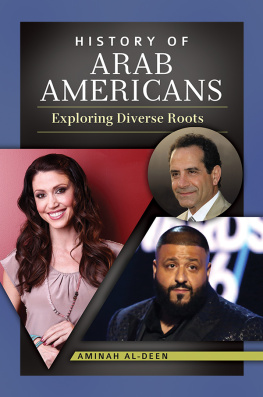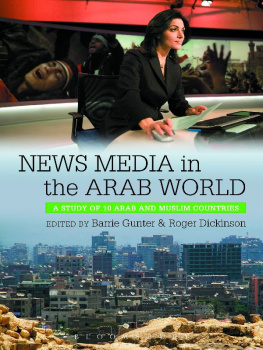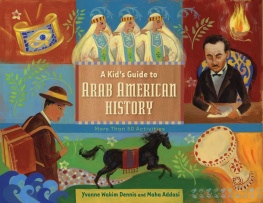Praise for How Does It Feel to Be a Problem?
Winner of an American Book Award
As Moustafa Bayoumi argues in his provocative investigation, young Arab Americans are still struggling to define their identities in a hostile environment and to cope with the governments distrust.... Despite what they have suffered and continue to endure, Bayoumi and his interview subjects still hope that America is a place where they can live in peaceand find justice, fairness, and freedom.
Francine Prose, O, The Oprah Magazine
In How Does It Feel to Be a Problem? Bayoumi gives twentysomething Arab Americans the chance to talk about their victories and defeats.
The Wall Street Journal
These are great stories about people who might be your neighbors, and Bayoumi delivers them with urgency, compassion, wryness and hints of poetry. You may walk away from the book with a much greater understanding of Arab American life, but youll feel thats simply because youve hung out with Bayoumi and friends, snarfing down Dunkin Donuts or puffing on hookahs, talking about vital issues.
Salon.com
Moustafa Bayoumis portraits of seven young Arabs living in Brooklyn asks the same question W.E.B. DuBois posed a century ago to African Americans. How Does It Feel to Be a Problem? manages to not only be humorous, intelligent, and filled with fantastic storytellingits also essential reading for those hoping to understand the unknown, unsung causalities of terrorism.
Samantha Hunt, The Courier-Journal (Louisville)
Moustafa Bayoumis How Does It Feel to Be a Problem? has an intimate feel, as the author listens closely to the dreams and realities of seven young Arabs living in post-9/11 America.
The Dallas Morning News
Bayoumi depicts everyday Arab life in a way that is both intimate and human, refusing to turn his book into either a political treatise or an aloof piece of investigative journalism. Moreover, this is not a depressing book. Bayoumi does not write America as a bleakly racist country, but instead calls into sharp relief the difference between the countrys originary values and the disturbing political climate we have now found ourselves in.
The Brooklyn Rail
Its both illuminating and disheartening to read of the obstacles and misconceptions that the young people whom Bayoumi shadows must deal with as they navigate daily life. But theres some small comfort in that the situation Bayoumi describes is not newother ethnic and religious groups have withstood and survived such bias before, and in the end, we have faith that well all get through this together, and come out stronger for it.
Star Tribune (Minneapolis)
A well-written book on a subject that is often overlooked or treated as a side note to bigger problems, like the occupation of Iraq, Israeli aggression and civil liberties.
The Arab American News
Bayoumi succeeds in presenting the reader with more than just a glimpse into these lives. One is right there with Rasha [a Syrian American teenager], who was detained along with the rest of her family without reason following 9/11. This first story is the most chilling as one can sense the frustration and dread emanating from Rashas story. I have heard about things like this happening but to actually read about nineteen-year-old Rasha and what she and her entire family had to endure is something else. Bayoumis decision to talk to Arabs from Brooklyn was a wise one as these stories are reflections from a group of people that not only have bared the brunt of discrimination, but call New York City their home and therefore 9/11 affected them as it did most New Yorkers. By providing a book accessible to the masses, Bayoumi gives the Arab problem a very human face that other Americans can empathize with.
mediaandislam.com
There is no doubt that Bayoumi has a central question, being What is it like to be young and Arab in the age of terror? Yet he is able to keep this question in his pocket and let the youth, for once, lead the way.
Colorlines.com
Bayoumi offers a revealing portrait of life for people who are often scrutinized but seldom heard from.
Booklist (starred review)
In many ways, [Bayoumis] absorbing and affectionate book is a quintessentially American picture of twenty-first-century citizens absorbing and refracting all the ethnicities and histories surrounding [them]. However, the testimonies from these young adultssummary seizures from their homes, harassment from strangers, being fired for having an Arab or Muslim namehave a weight and a sorrow that is often invisible to the general public.
Publishers Weekly (starred review)
The books title derives from a question posed by W.E.B. Du Bois in The Souls of Black Folk, and given the burgeoning of anti-Arab, anti-Muslim sentiments since 9/11, the authors appropriation of it seems apt. [Bayoumi] poignantly portrays young people coming of age at a time when informants and spies are regular topics of conversation... friendships are tested, trust disappears.
Kirkus Reviews
Wholly intelligent and sensitively-drawn, How Does It Feel to Be a Problem? is an important investigation into the hearts and minds of young Arab Americans. This significant and eminently readable work breaks through preconceptions and delivers a fresh take on a unique and vital community. Moustafa Bayoumis voice is refreshingly frank, personable, and true.
Diana Abu-Jaber, author of Origin, Crescent, and The Language of Baklava
In relating the gripping personal stories of seven young Arab and Muslim Americans from Brooklyn in How Does It Feel to Be a Problem?, Moustafa Bayoumi reveals the feelings and frustrations of the current eras scapegoats, who can be demonized, profiled, and reviled without fear of sanction. His book shows both the dimensions of this new problem for American society, and the hopeful signs that this problem too can be overcome.
Rashid Khalidi, Edward Said Professor of Arab Studies, Columbia University, and author of Iron Cage
Suspenseful storytelling and rich detail make How Does It Feel to Be a Problem? required reading for Americans yearning for knowledge about Islam and their Muslim neighbors in the United States. In a series of fascinating narratives about the horrors and conflicts young Muslim Americans faced after 9/11, Moustafa Bayoumi has written a work that is passionate yet measured, humorous, and above all enlightening.
Geneive Abdo, author of Mecca and Main Street:Muslim Life in America After 9/11
With deft prose, acute insight and extensive reporting, Moustafa Bayoumi has produced truly engrossing portraits of young Muslim Americans about whom we usually hear only empty polemics. With a light touch, he gives voice to people who are referred to often and heard from rarely. The result is a sense of the tentative resistance of a besieged generation, as well as their determination to force America to be true to its promise even if it means confronting prejudice in its practice.
Gary Younge, author of Stranger in a Strange Land: Encounters in the Disunited States and No Place Like Home
ABOUT THE AUTHOR
Moustafa Bayoumi was born in Zurich, Switzerland, and raised in Canada. He earned his Ph.D. at Columbia University and is an associate professor of English at Brooklyn College, the City University of New York. He is a coeditor of The Edward Said Reader , and his essays have appeared in Da Capo Best Music Writing 2006

